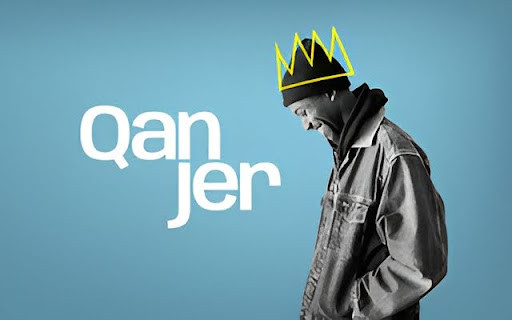'Even In The Age of AI, Hiring Needs a Human Touch,' Says Qanjer Founder Jurriaan Rang

There is no doubt that artificial intelligence is transforming the hiring process at an unprecedented pace. AI-powered tools aid in filtering applications in seconds, analyze keywords for job relevance, and automate scheduling and communication. The benefits are undeniable, with reduced costs, faster time-to-hire, and the ability to process thousands of applications without breaking a sweat.
But in the rush to embrace this technology, companies are losing sight of who they are hiring: humans. "When we strip down to an algorithm and checklist, we lose the person behind the CV," says Jurriaan Rang, founder of Qanjer Recruitment Solutions. "We forget that work is done by people, and they are unpredictable, passionate, and far more complex than bullet points on a résumé."
By heavily relying on automated systems, companies often limit themselves to a specific (often weaker) talent pool: active job seekers. These are people who may be dissatisfied with their current job, between roles, or recently let go. While this group contains skilled individuals, it overlooks a vast segment of high-performing professionals who are not actively looking but could be open to the right opportunity.
It's a subtle but important distinction. When hiring focuses only on those already seeking a change, companies miss the chance to attract people who are excelling in their roles but might be inspired to join a new mission.
There's also a risk in hiring purely for hard skills. "AI is good at screening for degrees, years of experience, and past job titles," Rang notes. "But that doesn't tell you if someone will fit your culture, share your values, or bring the energy your team needs."
And culture matters a lot. Research shows that 57% of employees leave not because of the company itself, but because of the people they work with. This is especially true for managerial hires, where the wrong leadership style can fracture an otherwise high-performing team.
Across industries, retention has become a pressing concern. In a market where skilled workers can move easily between employers, keeping the right people is as challenging as finding them in the first place. Overreliance on AI-driven, checkbox-style hiring can worsen the problem by bringing in people who match a job description but clash with the company's dynamics.

As the saying goes, the definition of insanity is doing the same thing over and over again and expecting different results. In hiring, relying solely on AI checklists without considering the human element risks just that.
"It's one thing to have the requirements to do a job," says Rang. "It's another to thrive in that role, build strong relationships, and drive the mission forward. That's where the human touch comes in."
Rang is not opposed to AI, rather far from it. Qanjer uses AI tools for speed, organization, and communication, even incorporating AI-driven text conversations to engage with potential candidates. But Rang is clear: "AI should enhance the process, not replace the human element. It should help us connect, not disconnect."
At Qanjer, the hiring process begins not with a job posting, but with understanding the client's culture, values, and the unique challenges of the role. This "startup workshop" digs deeper than the job description, identifying the passions that drive existing team members and the problems they feel proud to solve.
Instead of waiting for applications, Qanjer takes a proactive approach. Borrowing techniques from marketing: storytelling, gamification, social mapping, and growth hacking, they reach out to "people who are content where they are but might be drawn in by a compelling story about meaningful work.
These candidates are engaged long before a vacancy is even mentioned. Through interactive experiences, conversations, and challenges, they begin to see themselves in the role. By the time the job is offered, they've already mentally crossed the bridge.
The results are striking. This method taps into a fresh pool of talent, speeds up recruitment, and results in hires who are motivated by passion rather than escape from a bad situation. Science backs the approach: intrinsically motivated employees are more productive, take fewer sick days, and stay longer.
As the Qanjer Recruitment Solutions founder puts it, "You see it in sports; athletes go the extra mile because they love what they do. You want that same energy in your business. AI can help us get there faster, but it's passion that will win the race."
© Copyright IBTimes 2024. All rights reserved.




















